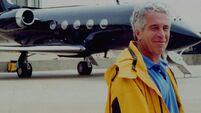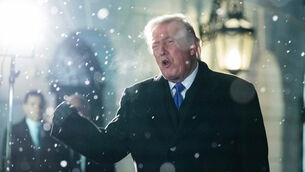US captures Iraqi spy chief with suspected al-Qaida links
The announcement came a day after the surrender of Saddam loyalist Tariq Aziz, for years the regime's most public face.
Farouk Hijazi, who most recently served as Iraq's ambassador to Tunisia, was once a senior official in the Mukhabarat, Saddam Hussein's intelligence service.














